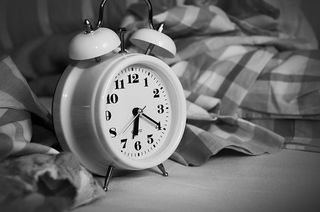Sleep
Is Zero Period a Bad Idea?
Another look at benefits and downsides of zero period.
Posted August 27, 2019

As schools begin the 2019-2020 school year, many older students will have a later start time than before as a result of the nationwide movement. However, even at schools where first period is later, some students will be arriving for zero period, typically an hour before all students must arrive. In some cases I have become aware of, these classes begin before 7:00 AM.
Recently I received an inquiry from a high school teacher in Georgia about zero period (ZP). The teacher’s school district is considering whether or not to initiate some ZP classes. They had come across my blog post from 2013 titled “Zero Period is a Bad Idea” and wanted to know if there was any research on the topic and if I had further thoughts. My response is below:
While I have done research on sleep and school performance and have written extensively on my blog about school start times, I have done no research to determine how attending ZP is related to sleep or school performance. Further, a quick search on Google Scholar brought up nothing when I used ZP as a search term. So my thought is that in all of the research and attention to school start times, no researchers have thought to look at ZP.
The bottom line on all of the recent attention to start school later, is do students actually get more sleep when school starts later? And does that more sleep translate to better school outcomes? A few studies have answered those questions in the affirmative (e.g. Dunster et al. 2018) The results are encouraging but it remains to be seen if those findings will hold up once students get used to the new schedule. They may merely stay up later. Unanswered so far by research is whether students from low-income families can benefit as much as those from higher-income families.
Given that there is no research that I know of on your question, I will venture an opinion. I agree with your observation that it comes down to whether the student taking ZP classes is responsible enough to go to bed earlier than they might otherwise prefer. I also imagine that ZP students are from families who have more resources (financial and psychological) and can provide support and encouragement at home for earlier bedtimes and other good sleep habits. Is that the case in your district? Are students taking those courses from families that are representative of SES levels in the school or is it your sense that they are somewhat higher on average? Don’t those students have to either drive a car or be driven by family members to get to school early? Would not that mean families with the resources to do that would be more likely to have a student taking a ZP class?
The keys for me are student motivation and self-discipline, along with having a supportive family. I also would argue for some basic instruction for how to attain good sleep hygiene for all ZP students. By sleep hygiene, I mean good habits surrounding behaviors and environments that support better sleep. No screens an hour before bedtime, no texting or social media just before bed or during the night, having a cool, quiet, dark place to sleep, no caffeine or nicotine in the afternoon or evening. If that instruction could be part of the first week’s curriculum for all of the ZP classes and activities, it would help ensure that students got sufficient sleep to be successful.
I hope your school year gets off to a good start!
References
Dunster, G. P., et al. (2018). Sleepmore in Seattle: Later school start times are associated with more sleep and better performance in high school students. Science advances, 4(12), eaau6200.


